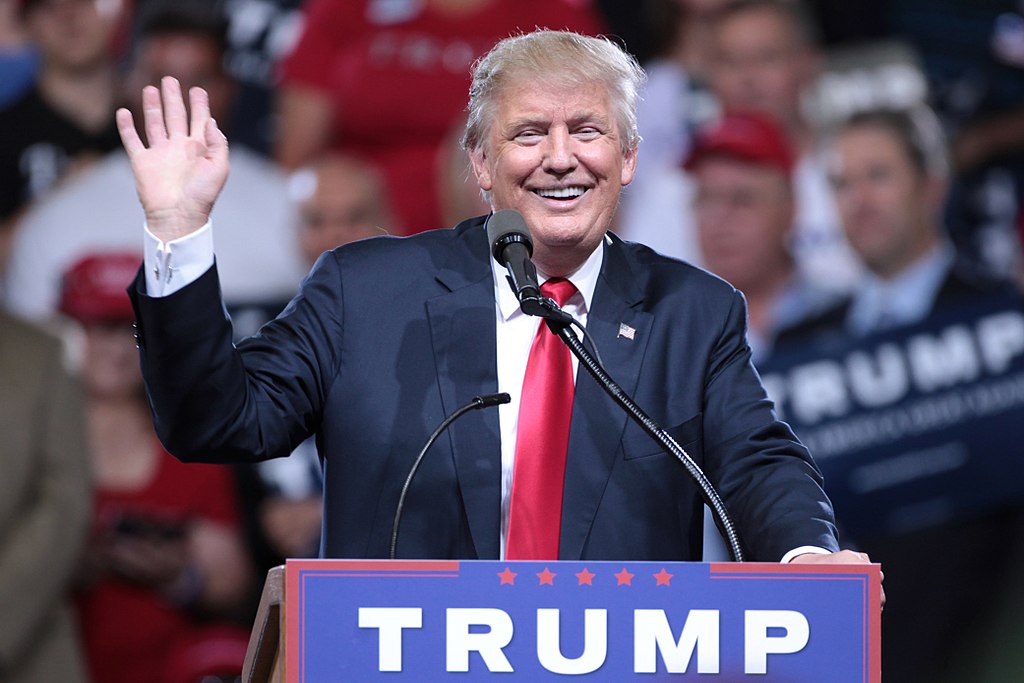Former President Donald Trump has promised to implement sweeping reforms aimed at slashing government regulations on his first day back in office. Trump detailed a strategy focused on reducing bureaucratic red tape, claiming it would restore economic prosperity and drive job creation across the country.
Speaking to supporters, Trump emphasized his commitment to eliminating outdated regulations, stating that for every new rule introduced, 10 existing ones would be dismantled. His pledge comes as businesses and economic analysts debate the effects of regulatory policies on job growth and productivity.
“Ten-for-One” Policy to Target Red Tape
Trump’s proposal highlights a key tenet of his economic strategy: reducing regulations that businesses say hinder innovation and growth. He argued that excessive government oversight has stifled opportunities for American workers and corporations, while driving jobs overseas.
“Starting on day one, we will implement a rapid series of bold reforms,” Trump said. “Preparations are already underway to slash massive job-killing regulations.”
The “ten-for-one” policy—removing 10 regulations for every new one created—mirrors Trump’s earlier efforts during his presidency, when he made deregulation a priority. His administration claimed to have eliminated thousands of outdated or redundant rules, particularly in industries such as manufacturing, energy, and agriculture.
Proponents of Trump’s policies argue that reducing regulatory burdens will empower small businesses, attract investment, and streamline processes for industries vital to the nation’s economy. However, critics caution that aggressive deregulation could harm public health, safety, and environmental protections.
Economic Impact and Public Reaction
Trump’s regulatory rollback strategy has drawn mixed reactions from economists, businesses, and the public. Supporters praise the plan as a necessary step to revitalize the economy, particularly as the nation navigates post-pandemic recovery efforts. Detractors, however, fear the consequences of weakening regulations designed to protect consumers, workers, and the environment.
The former president’s focus on job creation and economic prosperity has resonated with a significant portion of his base. Trump maintains that deregulation will enable businesses to expand, hire more workers, and contribute to long-term growth.
Meanwhile, environmental groups and labor organizations argue that unchecked deregulation could compromise workplace safety and sustainability efforts. Analysts predict heated debates on the future of federal oversight, particularly as the 2024 election approaches.
Social Media Reactions Reflect Divide
Trump’s announcement quickly ignited conversations on social media, where users voiced strong opinions on both sides of the debate:
- @PatriotJoe45: “Finally! Someone who gets it—cut the red tape and bring back jobs for Americans!”
- @GreenFutureNow: “Slashing regulations is a recipe for disaster. Our health and environment aren’t negotiable.”
- @SmallBizHero: “Businesses have been crushed under regulations. Trump’s plan is a breath of fresh air.”
- @PolicyRealist: “Bold promises, but deregulation without balance will cost us more in the long run.”
- @ProWorkerVoice: “How does this help workers if protections are stripped? Trump’s priorities are all wrong.”
- @EconomyWatch: “Deregulation worked before—it’ll work again. The economy needs a boost, and this is how.”
The reactions highlight ongoing divisions over Trump’s economic policies and their potential implications.



 Trump Offers U.S. Insurance and Naval Escort for Tankers as Strait of Hormuz Crisis Disrupts Global Oil Trade
Trump Offers U.S. Insurance and Naval Escort for Tankers as Strait of Hormuz Crisis Disrupts Global Oil Trade  Why did Iran bomb Dubai? A Middle East expert explains the regional alliances at play
Why did Iran bomb Dubai? A Middle East expert explains the regional alliances at play  Trump Defends Extended U.S.-Israel Military Campaign Against Iran
Trump Defends Extended U.S.-Israel Military Campaign Against Iran  AI is already creeping into election campaigns. NZ’s rules aren’t ready
AI is already creeping into election campaigns. NZ’s rules aren’t ready  Trump to Attend White House Correspondents’ Dinner 2026, Ending Long Boycott
Trump to Attend White House Correspondents’ Dinner 2026, Ending Long Boycott  U.S. Middle East Strikes Raise Indo-Pacific Security Concerns for Japan, South Korea, and Taiwan
U.S. Middle East Strikes Raise Indo-Pacific Security Concerns for Japan, South Korea, and Taiwan  Supreme Court Backs GOP Lawmaker in New York Redistricting Fight Ahead of Midterms
Supreme Court Backs GOP Lawmaker in New York Redistricting Fight Ahead of Midterms  Nepal General Election 2026: Youth Protests, Political Change, and a New Generation of Voters
Nepal General Election 2026: Youth Protests, Political Change, and a New Generation of Voters  U.S. Military Strikes on Iran Complicate Xi-Trump Summit and Expose China’s Energy Risks
U.S. Military Strikes on Iran Complicate Xi-Trump Summit and Expose China’s Energy Risks  Pentagon Downplays ‘Endless War’ Fears After U.S. Strikes on Iran Escalate Conflict
Pentagon Downplays ‘Endless War’ Fears After U.S. Strikes on Iran Escalate Conflict  U.S. Interior Department Responds to Leak of Trump Administration Plans to Revise National Park History
U.S. Interior Department Responds to Leak of Trump Administration Plans to Revise National Park History  Iran Detains U.S. Citizens Amid Escalating Conflict With the United States and Israel
Iran Detains U.S. Citizens Amid Escalating Conflict With the United States and Israel  Trump’s Iran Strikes Spark War Powers Clash in Congress
Trump’s Iran Strikes Spark War Powers Clash in Congress  Trump and Merz Meet at White House Amid Iran Strikes and Trade Tensions
Trump and Merz Meet at White House Amid Iran Strikes and Trade Tensions  Trump Says U.S.-UK Relationship Has Deteriorated After Starmer Hesitates on Iran Strikes
Trump Says U.S.-UK Relationship Has Deteriorated After Starmer Hesitates on Iran Strikes  Does international law still matter? The strike on the girls’ school in Iran shows why we need it
Does international law still matter? The strike on the girls’ school in Iran shows why we need it  U.S. Preparing Possible Corruption Charges Against Venezuelan President Delcy Rodriguez
U.S. Preparing Possible Corruption Charges Against Venezuelan President Delcy Rodriguez 



























